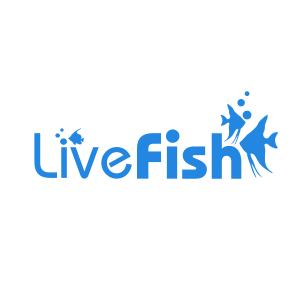Golden Angelfish - Small
This spectacular species of dwarf angelfish is sure to spice up your aquarium. Quite a rarity in the trade, this simple looking yet quite secretive fish, is a joy to observe in the tank.
Golden Angelfish
This species is a deep red/orange colour with hints of gold and brown. Sometimes the head and face is slightly darker than the rest of the body. They are slightly taller in body than other species of dwarf angelfish and can grow to around 4 inches (10 cm).
Males are normally larger than females and can be kept as pairs. All Golden Angelfish are born female and when kept together the more dominant female will transform into the male of the pair/group. No reproductive behaviour has been noticed in captivity with this species of angelfish.
This is an extremely rewarding yet challenging fish to keep. It is recommended only for expert aquarists due to the difficulty of managing water quality and feeding habits. They are definitely well worth the effort though.
They are found in the Western Pacific ocean from Samoa down to the Great Barrier Reef and parts of Indonesia and Micronesia. They love living in reef crevices and branchy corals normally alone but sometimes have been seen in groups of several females and one male. They have been spotted at depths down to 60 metres.
Tank Recommendations for Golden Angelfish
The smallest tank size for these fish is 120 litres when keeping alone or with a couple of other small fish. If more fish are going to be added then at least 230 litres is recommended. This species needs a stable environment so only add them to tanks that are at least 6 months old. Be sure to include plenty of hiding space as they are quite shy fish. They prefer a dimly lit tank but can be kept under normal lighting once they are comfortable. They will spend most of their time in the bottom part of the tank around the rocks and coral so water movement is not a consideration.
Suitable Tank Buddies
Larger, fast-moving fish can scare the Golden Angelfish easily so be cautious when choosing tank buddies. Add tank buddies selectively and if you notice it doesn't come out to eat for a few days then remove the offending fish quickly.
Usually Compatible
Tangs, Squirrelfish and Pufferfish would make wonderful tank buddies. Other great options could include Parrotfish, Hogfish and Grunts. Filefish, Damselfish and Clownfish will also get along well together too. Cardinalfish, Butterflyfish and Boxfish are other excellent choices as well.
Sometime Compatible
Take care when combining them with other species of Dwarf Angelfish. Frogfish, Batfish and Eels should have a close eye kept on them as well. Other species which can sometimes be problematic are Groupers and Lionfish. Small crustaceans and invertebrates may get picked at and eaten. Rays, Scorpionfish and Triggerfish should only be attempted with caution too. The Golden Angelfish will eat and pick at certain species of corals and sponges so select them carefully.
Rarely Compatible
Sharks should not be housed with these fish due to the fact that they will actively prey upon them. Species such as Pipefish and Seahorses are too shy and docile in the presence of Angelfish so avoid keeping them together as well.
Feeding your Golden Angelfish
These fish are omnivores and in the wild will get half their diet from vegetable matter and the other half from meat so try to mimic this as much as possible. Feed them several times a day and offer them frozen preparations for sponge and algae eaters along with flake foods and other angelfish formulas. Also, offer them mysis and brine shrimp and crustaceans such as shrimp and clams. If you have difficulty getting them to feed try opening a clam or ripping open other marine flesh to elicit a response.
| Scientific Name | Centropyge aurantia |
|---|---|
| Care Level | Hard |
| Common Names | The Golden Angelfish is also known as the Golden Pygmy Angelfish and theVelvet Dwarf Angel |
| Diet | Omnivore |
| Fish Family | Pomacanthidae |
| Lifespan (years) | 8 |
| Max. Length (cm) | 10 |
| Min. Tank Volume (l) | 120 |
| Origin | West Pacific |
| Reef Safe | With Caution |
| Sociability | Peaceful |
| Venomous | No |
| Water Conditions | 23 - 28° C, dKH 8-12, pH 8.0-8.4, sg 1.023-1.025 |


